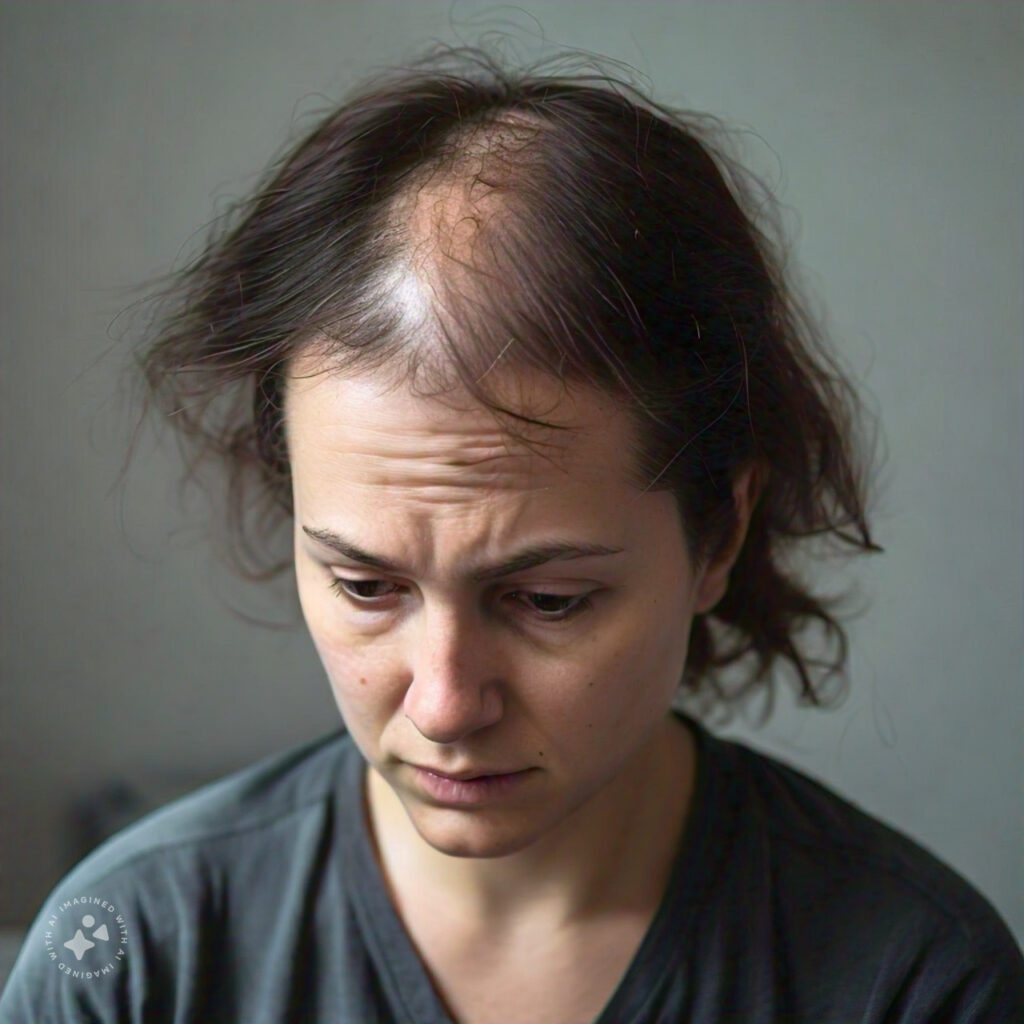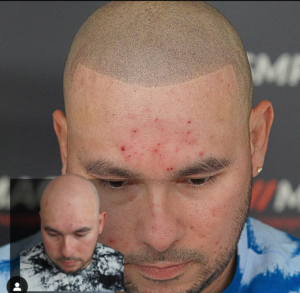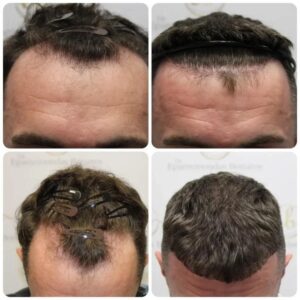Alopecia, commonly known as hair loss or baldness, affects millions worldwide. The result of Alopecia baldness does not only affect hair loss but also some people’s confidence and self-esteem. The big question lies in whether this condition can be treated effectively.
Understanding the causes, available treatments, and innovative solutions like Scalp Micropigmentation (SMP) can empower individuals to take control of their hair loss journey.
This blog post aims to provide a comprehensive guide to alopecia, explore various treatments, and highlight how Mac SMP can make a difference.
Table of Contents
Key Takeaway
Alopecia baldness, affecting millions worldwide, can lead to significant hair loss and impact self-esteem. Understanding its causes and symptoms is crucial for effective treatment. Various treatments offer hope, from medications and hair transplants to innovative options like Scalp Micropigmentation (SMP). SMP, in particular, provides a natural-looking, minimally invasive solution, helping individuals regain confidence and manage their condition effectively.

Image Credits: Pexels
Understanding Alopecia
Alopecia refers to the partial or complete absence of hair from areas where it usually grows. It can manifest in different forms:
- Alopecia areata: An autoimmune disorder causing round patches of hair loss.
- Androgenetic alopecia: This alopecia condition, also known as male or female pattern baldness, is the most common form of hair loss and is often hereditary.
- Alopecia totalis and universalis: Severe alopecia areata leads to complete scalp hair loss (totalis) or entire body hair loss (universalis).
- Traction alopecia: Hair loss caused by sustained tension on the hair, often due to certain hairstyles.
Alopecia affects both men and women, with varying degrees of severity, and can occur at any age.
Other Things You Need To Know About Scalp Micropigmentation (SMP)
Scalp Micropigmentation (SMP) is a non-surgical treatment that creates the illusion of fuller hair. SMP involves applying pigment to the scalp, mimicking the appearance of natural hair follicles.
Trained technicians use specialized needles to deposit pigment into the scalp’s dermal layer, creating a realistic shaved or short hair look. Provides immediate results, requires minimal maintenance, and is suitable for all skin types and hair colors.
SMP offers a viable solution for those seeking a natural-looking alternative to hair transplants or medications.
Causes of Alopecia Baldness
There are several causes of Alopecia baldness. Alopecia occurs when white blood cells mistakenly attack the cells within hair follicles, leading to their shrinkage and a significant reduction in hair production. The exact cause behind the immune system targeting hair follicles in this manner remains unclear.
However, genetics play a role, as individuals with close family members affected by alopecia areata are more likely to develop the condition. One in five people with alopecia areata have a family member who also has the disease. Now, that brings us to the first factor that causes Alopecia:
- Genetic factors: A family history of baldness increases the likelihood of developing androgenetic alopecia.
- Hormonal changes: Hormonal imbalances, such as those during pregnancy, menopause, or thyroid issues, can trigger hair loss.
- Autoimmune responses: In conditions like alopecia areata, the immune system mistakenly attacks hair follicles.
- Environmental factors: Exposure to toxins, pollutants, or harsh chemicals can contribute to hair loss.
- Lifestyle influences: Poor diet, lack of exercise, and smoking can negatively affect hair health.
- Stress and psychological impact: High-stress levels, known as telogen effluvium, can lead to temporary hair loss.
Understanding these causes is crucial for effective treatment and prevention.

Image Credits: Pexels
Symptoms and Diagnosis of Alopecia Baldness
Common symptoms of alopecia include:
- Gradual thinning on the top of the head
- Circular or patchy bald spots
- Sudden loosening of hair
- Full-body hair loss
- Patches of scaling that spread over the scalp
Diagnosing alopecia involves:
- Medical history: Assessing family history and underlying health conditions.
- Physical examination: Observing the pattern and extent of hair loss.
- Diagnostic tests: Blood tests to identify underlying conditions, scalp biopsy to examine hair follicles, and pull tests to assess hair loss severity.
Accurate diagnosis helps tailor the most suitable treatment plan.
Popular Treatments for Alopecia Baldness
You can manage and treat Alopecia in several ways. Over the years, hair transplant technology has improved and is more effective with excellent results. Medications and natural or home remedies are also good ways of treating baldness. Let’s take a look at how these methods can help.
A. Medications:
– Minoxidil: A topical solution that stimulates hair growth.
– Finasteride: An oral medication that reduces hair loss by blocking the hormone responsible for hair thinning.
B. Hair transplant surgery:
Hair transplant surgery involves moving hair follicles from areas of dense growth, typically the back or sides of the scalp, to bald or thinning areas. This procedure aims to restore a natural-looking hairline and improve hair density.
C. Natural and home remedies:
- Dietary changes: Consuming a balanced diet of vitamins and minerals essential for hair growth.
- Essential oils: Applying rosemary or peppermint to promote hair health.
- Herbal treatments: Some people believe that using herbs like saw palmetto or ginseng can reduce hair loss. Please ensure to consult your doctor before trying any of these herbal options.
While these treatments can be effective, results may vary, and some may have side effects. We have also covered some recent research developments on our blog about the latest alopecia baldness treatments.

Image Credits: Pexels
Innovative Treatments for Alopecia
Emerging treatments offer new hope for those struggling with hair loss:
- Platelet-rich plasma (PRP) therapy Involves injecting concentrated platelets from the patient’s blood into the scalp to stimulate hair growth.
- Laser therapy: Uses low-level lasers to enhance blood flow and stimulate hair follicles.
- Microneedling: Involves using tiny needles to create micro-injuries on the scalp, promoting hair regeneration.
These treatments are gaining popularity for their effectiveness and minimal invasiveness.
How Can Mac SMP Can Help Alopecia Baldness?
Mac SMP is a leading provider of Scalp Micropigmentation, known for its expertise and client satisfaction:
At Mac SMP, we offer personalized consultations and treatment plans tailored to individual needs. We start our procedure with a thorough assessment to understand the client’s goals and expectations. The next step involves the treatment sessions.
Achieving optimal results involves 2-3 sessions a few weeks apart. Guidance on post-treatment care to ensure long-lasting results. Mac SMP’s dedication to quality and client care makes it a top choice for those considering SMP.
Comparing SMP with Other Treatments
When compared to other hair loss treatments, SMP offers several advantages:
Advantages of SMP over other treatments
- Provides a natural and realistic appearance.
- Less invasive with no downtime.
- Long-lasting results with minimal maintenance.
SMP is an effective solution for many, but it’s essential to consider individual needs and preferences.
Frequently Asked Questions about SMP
Addressing common questions can help potential clients make informed decisions:
How long does SMP last?
Typically, SMP lasts 3-5 years before a touch-up may be needed.
Is SMP painful?
Most clients report minimal discomfort during the procedure.
What is the recovery time after SMP?
There is no downtime; clients can return to normal activities immediately.
How much does SMP cost?
The cost varies based on the extent of treatment but is generally more affordable than hair transplants.
Final Words
Alopecia baldness can be a challenging condition, but understanding its causes and exploring various treatments can lead to effective management. Scalp Micropigmentation, especially with a trusted provider like Mac SMP, offers a promising solution for those seeking to regain confidence and appearance. If you’re struggling with hair loss, consider contacting Mac SMP for a free consultation and take the first step towards a new look.
Enjoy This Article? You May Also Like:
- Balding Hair: Myths Vs. Facts And Effective Strategies To Combat It
- Hair Loss Thinning: Causes, Prevention And Treatment Options
- Scalp Micropigmentation Training: From Beginner To Mastery – The Ultimate Guide To Becoming An SMP Technician
- Hair Thinning: Why Your Hair Are Thinning And What To Do About It
- How To Address A Thinning Hairline: Tips And Treatment



